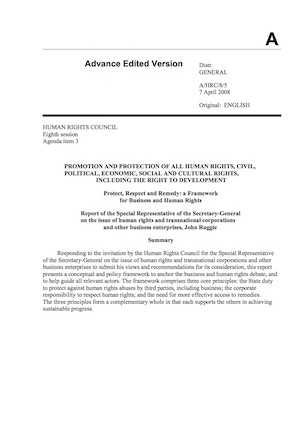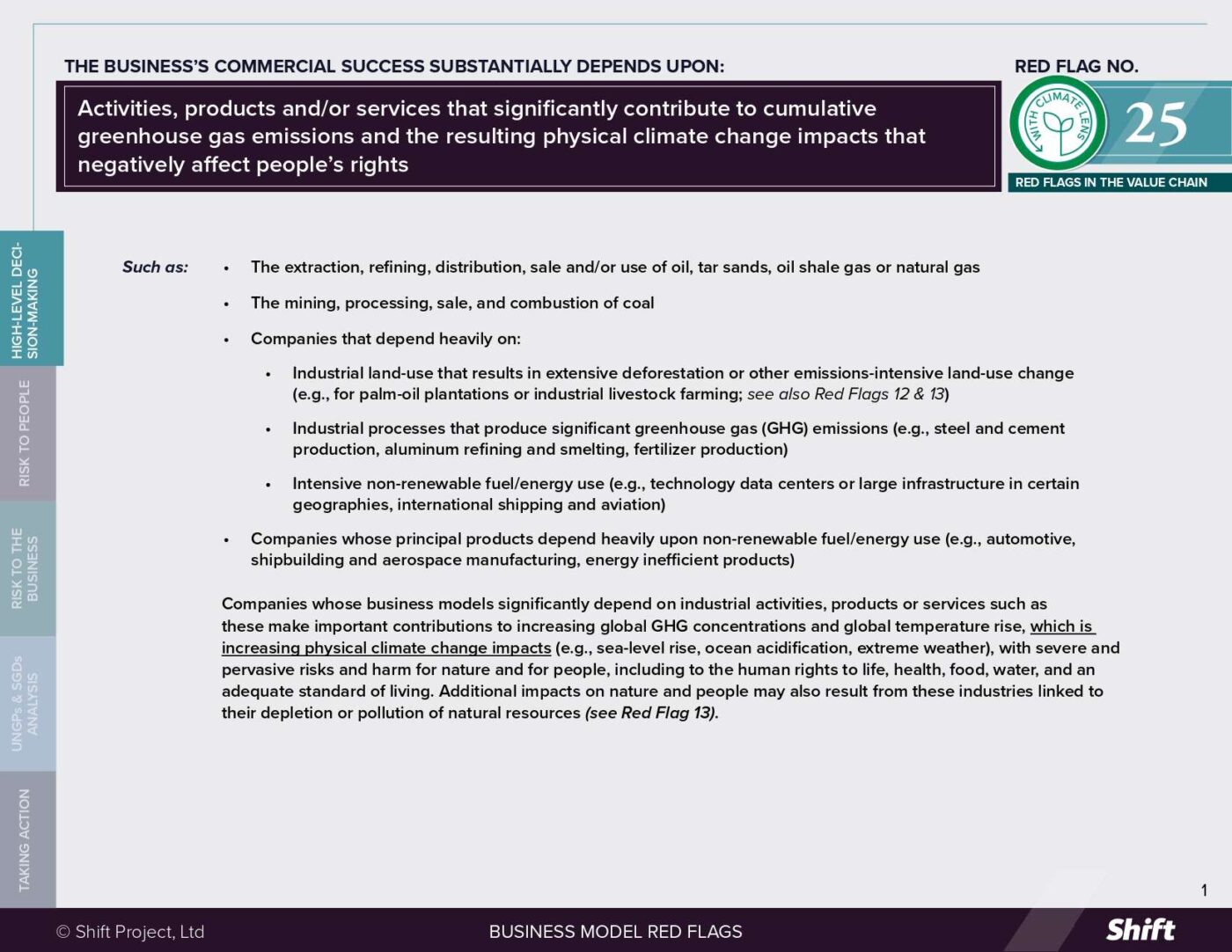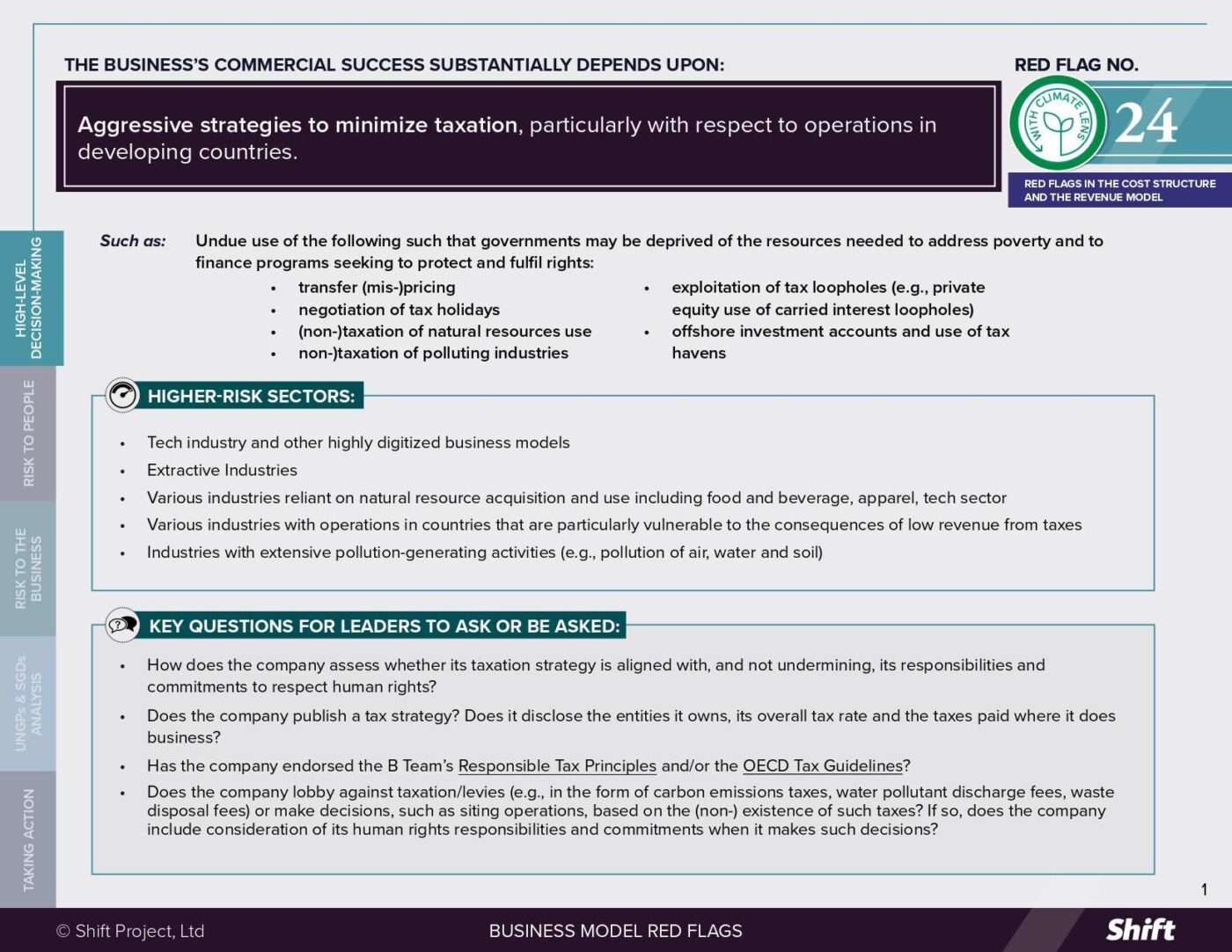The summary is excerpted from the resource.
Summary
The international community is still in the early stages of adapting the human rights regime to provide more effective protection to individuals and communities against corporate-related human rights harm. This report to the Human Rights Council presents a principles-based conceptual and policy framework intended to help achieve this aim.
Business is the major source of investment and job creation, and markets can be highly efficient means for allocating scarce resources. They constitute powerful forces capable of generating economic growth, reducing poverty, and increasing demand for the rule of law, thereby contributing to the realization of a broad spectrum of human rights. But markets work optimally only if they are embedded within rules, customs and institutions. Markets themselves require these to survive and thrive, while society needs them to manage the adverse effects of market dynamics and produce the public goods that markets undersupply. Indeed, history teaches us that markets pose the greatest risks – to society and business itself – when their scope and power far exceed the reach of the institutional underpinnings that allow them to function smoothly and ensure their political sustainability. This is such a time and escalating charges of corporate-related human rights abuses are the canary in the coal mine, signalling that all is not well.
The root cause of the business and human rights predicament today lies in the governance gaps created by globalization – between the scope and impact of economic forces and actors, and the capacity of societies to manage their adverse consequences. These governance gaps provide the permissive environment for wrongful acts by companies of all kinds without adequate sanctioning or reparation. How to narrow and ultimately bridge the gaps in relation to human rights is our fundamental challenge.
The business and human rights debate currently lacks an authoritative focal point. Claims and counter-claims proliferate, initiatives abound, and yet no effort reaches significant scale. Amid this confusing mix, laggards – States as well as companies – continue to fly below the radar.
Some stakeholders believe that the solution lies in a limited list of human rights for which companies would have responsibility, while extending to companies, where they have influence, essentially the same range of responsibilities as States. For reasons this report spells out, the Special Representative has not adopted this formula. Briefly, business can affect virtually all internationally recognized rights. Therefore, any limited list will almost certainly miss one or more rights that may turn out to be significant in a particular instance, thereby providing misleading guidance. At the same time, as economic actors, companies have unique responsibilities. If those responsibilities are entangled with State obligations, it makes it difficult if not impossible to tell who is responsible for what in practice. Hence, this report pursues the more promising path of addressing the specific responsibilities of companies in relation to all rights they may impact.
There is no single silver bullet solution to the institutional misalignments in the business and human rights domain. Instead, all social actors – States, businesses, and civil society – must learn to do many things differently. But those things must cohere and become cumulative, which makes it critically important to get the foundation right.
Every stakeholder group, despite their other differences, has expressed the urgent need for a common conceptual and policy framework, a foundation on which thinking and action can build.
The framework rests on differentiated but complementary responsibilities. It comprises three core principles:
- the State duty to protect against human rights abuses by third parties, including business;
- the corporate responsibility to respect human rights; and
- the need for more effective access to remedies.
Each principle is an essential component of the framework: the State duty to protect because it lies at the very core of the international human rights regime; the corporate responsibility to respect because it is the basic expectation society has of business; and access to remedy, because even the most concerted efforts cannot prevent all abuse, while access to judicial redress is often problematic, and non-judicial means are limited in number, scope and effectiveness. The three principles form a complementary whole in that each supports the others in achieving sustainable progress.




